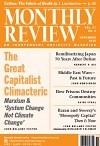Marxism
John M. Kirk, Health Care without Borders: Understanding Cuban Medical Internationalism (Gainesville, FL: University Press of Florida, 2015), 376 pages, $79.95, hardback.
When the Ebola virus began to spread through western Africa in fall 2014, much of the world panicked. Soon, over 20,000 people were infected, more than 8,000 had died, and worries mounted that the death toll could reach into hundreds of thousands. The United States provided military support; other countries promised money. Cuba was the first nation to respond with what was most needed: it sent 103 nurses and 62 doctors as volunteers to Sierra Leone. With 4,000 medical staff (including 2,400 doctors) already in Africa, Cuba was prepared for the crisis before it began: there had already been nearly two dozen Cuban medical personnel in Sierra Leone.… Since many governments did not know how to respond to Ebola, Cuba trained volunteers from other nations at Havana’s Pedro Kourí Institute of Tropical Medicine. In total, Cuba taught 13,000 Africans, 66,000 Latin Americans, and 620 Caribbeans how to treat Ebola without being infected. It was the first time that many had heard of Cuba’s emergency response teams.… The Ebola experience is one of many covered in John Kirk’s new book Health Care without Borders: Understanding Cuban Medical Internationalism. | more…

Winner of the first Paul A. Baran–Paul M. Sweezy Memorial Award for an original monograph concerned with the political economy of imperialism, John Smith’s Imperialism in the Twenty-First Century is a seminal examination of the relationship between the core capitalist countries and the rest of the world in the age of neoliberal globalization. Deploying a sophisticated Marxist methodology, Smith begins by tracing the production of certain iconic commodities—the T-shirt, the cup of coffee, and the iPhone—and demonstrates how these generate enormous outflows of money from the countries of the Global South to transnational corporations headquartered in the core capitalist nations of the Global North. From there, Smith draws on his empirical findings to powerfully theorize the current shape of imperialism. | more…
Heather A. Brown, Marx on Gender and the Family: A Critical Study (Chicago: Haymarket, 2012), 323 pages, $28.00, paperback.
Silvia Federici, Revolution at Point Zero: Housework, Reproduction, and Feminist Struggle (Oakland: PM Press, 2012), 189 pages, $15.95, paperback.
In the face of global economic crisis and the dismantling of social programs under austerity policies, many feminists are re-engaging Marx’s critique of capitalism. This return to Marx is necessary if we are effectively to overcome gender oppression, especially since the latest trends in feminism—or at least those “fit to print” and discussed in the popular press—place the onus of equal treatment squarely on women’s shoulders. Newfound feminists like Sheryl Sandberg advise women to “lean in” and adjust their behavior to suit the aggressively entrepreneurial norms rewarded in the real world that men lead. As Nancy Fraser aptly puts it, these tendencies within feminism serve as “capitalism’s handmaiden”: such identity-centered, cultural critiques have helped obscure capital’s dependency on gendered oppressions.… Fortunately, recent scholarship by Heather Brown as well as Federici herself provides useful insights for feminists on how to reconsider Marxist theory. | more…

In this issue we feature two articles on the 1965–1966 mass killings and imprisonments in Indonesia. The army-led bloodbath was aimed at the near-total extermination of members of the Indonesian Communist Party (PKI), then a highly successful electoral party with a membership in the millions.… In all, an estimated 500,000 to a million (or more) people were murdered. Another 750,000 to a million-and-a-half people were imprisoned, many of whom were tortured. Untold thousands died in prison. Only around 800 people were given a trial—most brought before military tribunals that summarily condemned them to death.… The United States…was involved clandestinely in nearly every part of this mass extermination: compiling lists of individuals to be killed; dispatching military equipment specifically designated to aid the known perpetrators of the bloodletting; offering organizational and logistical help; sending covert operatives to aid in the “cleansing”; and providing political backing to the killers.… [T]he mass killings…[were carried out with the active] complicity of the U.S. media. | more…
An Interview with Tan Swie Ling on the 1965 Mass Killings in Indonesia
In the early morning of October 1, 1965, self-proclaimed left-wing troops raided the houses of seven top army generals in Jakarta. In the process, six of the generals were killed—three were shot during the kidnapping attempt, while the others were taken to Lubang Buaya, an air force base located in the south of Jakarta, and then killed. The seventh general, Nasution, managed to escape. The perpetrators announced on national radio that they were troops loyal to President Sukarno, and they aimed to protect the president from the danger posed by the right-wing “Council of Generals”—who, they said, were planning to launch a military coup d’état.… This movement was very short-lived. Within one day, it collapsed. Major General Suharto…took control of the army during the morning of October 1 and quickly crushed the movement.… [W]hat happened on October 1, 1965 marked the fall of Sukarno and the rise of Suharto, who was soon to rule Indonesia under his military dictatorship for more than three decades. The brutality of Suharto’s New Order is probably not news for people familiar with Indonesia. But there is “an episode the West would prefer to forget,” as journalist John Pilger put it, that accompanied Suharto’s rise to power: the destruction of Communism and the mass killings that followed—a phenomenon claimed by Time magazine in 1966 as “The West’s best news for years in Asia.” | more…
Lucia Pradella, Globalization and the Critique of Political Economy: New Insights from Marx’s Writings (London: Routledge, 2015), 218 pages, $160, hardback.
In 2012, the second section of the new historical-critical edition of Marx and Engels’s complete writings, the Marx-Engels-Gesamtausgabe (MEGA), was finally completed, and all the editions and manuscripts of Capital became available in order to trace Marx’s own theoretical development and Engels’s editorial works. The remaining three sections are, however, only halfway completed, and it will likely take at least another twenty years before all the work is finished.… What is more, a great number of them are Marx’s journal fragments and excerpts, which have not yet been published in any language. In this sense, the distinct importance of continuing the MEGA project is the further publication of these unknown notebooks, which promise to reveal Marx’s unfinished undertaking, the critique of political economy.… It is therefore no coincidence that a new trend has emerged in the last few years of scholars studying Marx’s notebooks. Works like Kevin Anderson’s Marx at the Margins, Heather Brown’s Marx on Gender, and my own article on Liebig in Monthly Review have shown the underestimated theoretical dimensions of anti-colonialism, gender, and ecology in Marx’s thought. | more…

This fifty-second edition of the Socialist Register explores right-wing political forces and parties around the globe, bringing to bear the Register’s reputation for detailed scholarship and passionate engagement on some of the most troubling developments in world politics today. Contributors examine mobilizations of the right in a variety of countries by analyzing their social bases, their relationships with state institutions, and the reach of their influence on mainstream parties and opinion. This volume also addresses the historical transition from right-wing nationalism to ethnicism, the question of resurgent fascism, and how left parties should respond to challenges from the far right. | more…

To understand why the Middle East is now in shambles, with the United States currently involved simultaneously in wars against both the Assad government in Syria and the Islamic State in Iraq, generating the greatest refugee crisis in Europe since the Second World War, it is necessary to go back almost a quarter-century to the 1991 Persian Gulf War. The Gulf War, unleashed by the United States in response to Iraq’s invasion of Kuwait, was made possible by the growing disorder in the USSR followed by its demise later that same year. The USSR’s disappearance from the world stage allowed the United States to shift to a naked imperialist stance—though justified in the manner of the colonial empires of old as “anti-terrorism” and “humanitarian intervention”—not only in the Middle East, but also along the entire great arc that had constituted the perimeter of the former Soviet Union. | more…
An interview with John Bellamy Foster
Monopoly Capital was the principal Marxian, and indeed radical, political-economic work to be published in the 1960s, written by the two most prestigious Marxian economists in the United States and perhaps globally. It grew out of the critique of militarism and imperialism and economic waste as much as out of economic crisis. It was one of the first major works to focus on multinational corporations. Its final chapter emphasized the “irrational system” and was influenced by [Paul] Baran’s early background with the Institute for Social Research in Frankfurt. All of this made it extremely influential with the New Left in the United States, particularly its more radical, socialist wing. A good indication of this is Assar Lindbeck’s 1971 mainstream attack on what he called The Political Economy of the New Left, which focused almost entirely on Monopoly Capital. | more…
Science and the Struggle for Change
In the short time available to me in this talk it is impossible to go too far with a discussion of the state of ecological Marxism as I understand it. However, I plan to discuss briefly a significant feature of the program of ecological Marxist analysis and practice of which I consider myself a part. Specifically, I will discuss the methodological commitments responsible for much of the strength and insight of the ecological Marxism associated with what John Bellamy Foster has called the “third stage of ecosocialism research…in which the goal is to employ the ecological foundations of classical Marxian thought to confront present-day capitalism and the planetary ecological crisis that it has engendered—together with the ruling forms of ideology that block the development of a genuine alternative.” This, I believe, will interest scholars and activists working toward a deeper understanding of the world with the ultimate goal of changing it, and should interest those involved in debates regarding Marxian theory and praxis. | more…
Roberta Salper, Domestic Subversive: A Feminist Take on the Left, 1960–1976 (Tucson: Anaphora Literary Press, 2014), 236 pages, $20, paperback.
Since second wave feminism is the largest social movement in the history of the United States, it is surprising that there are fewer than a dozen autobiographies written by the activists of the late 1960s and early ’70s. Roberta Salper’s Domestic Subversive is a welcome addition, especially because it is well-written, often with humor, and promises an anti-imperialist feminist analysis.… Domestic Subversive is a feminist’s take on a range of organizations of the left from 1960 to 1976: the student movement in Spain, New Left movement in the United States, Marxist-Leninist Puerto Rican Socialist Party in the United States and Puerto Rico, and a prestigious liberal think tank in Washington, D.C., the Latin American Unit of the Institute of Policy Studies (IPS), where she worked as a Resident Fellow. | more…

Michael A. Lebowitz explores the obvious but almost universally ignored fact that as human beings work together to produce society's goods and services, we also “produce” something else: namely, ourselves. Human beings are shaped by circumstances, and any vision of socialism that ignores this fact is bound to fail, or, at best, reproduce the alienation of labor that is endemic to capitalism. But how can people transform their circumstances in a way that allows them to re-organize production and, at the same time, fulfill their human potential? These essays repay careful reading and reflection, and prove Lebowitz to be one of the foremost Marxist thinkers of this era. | more…




